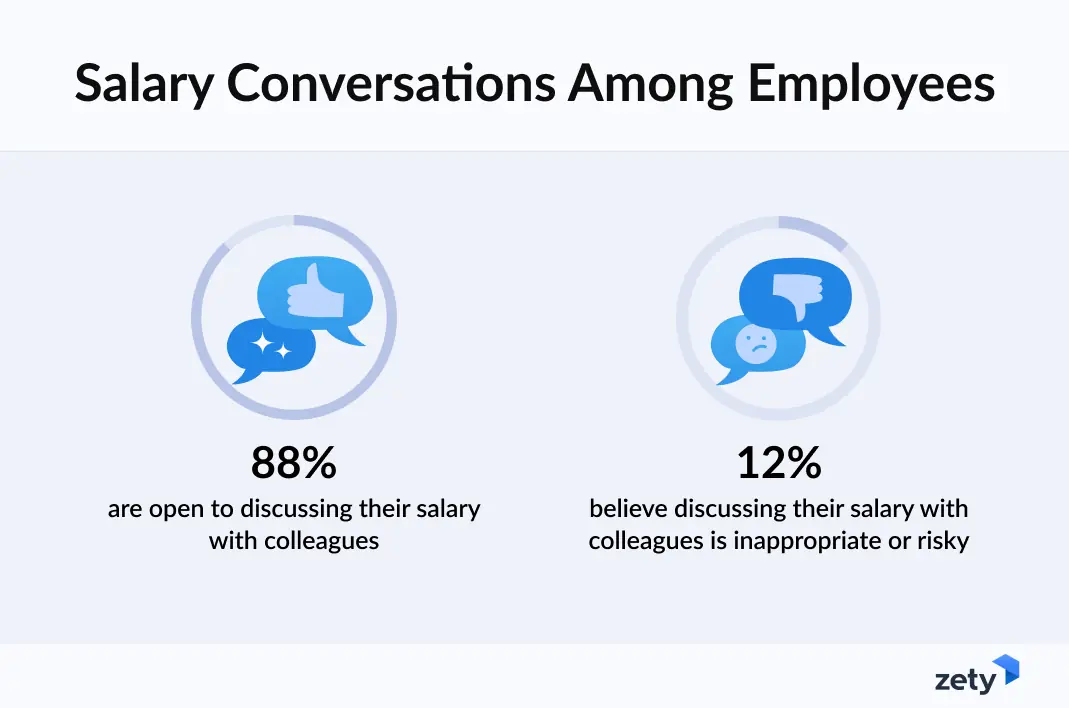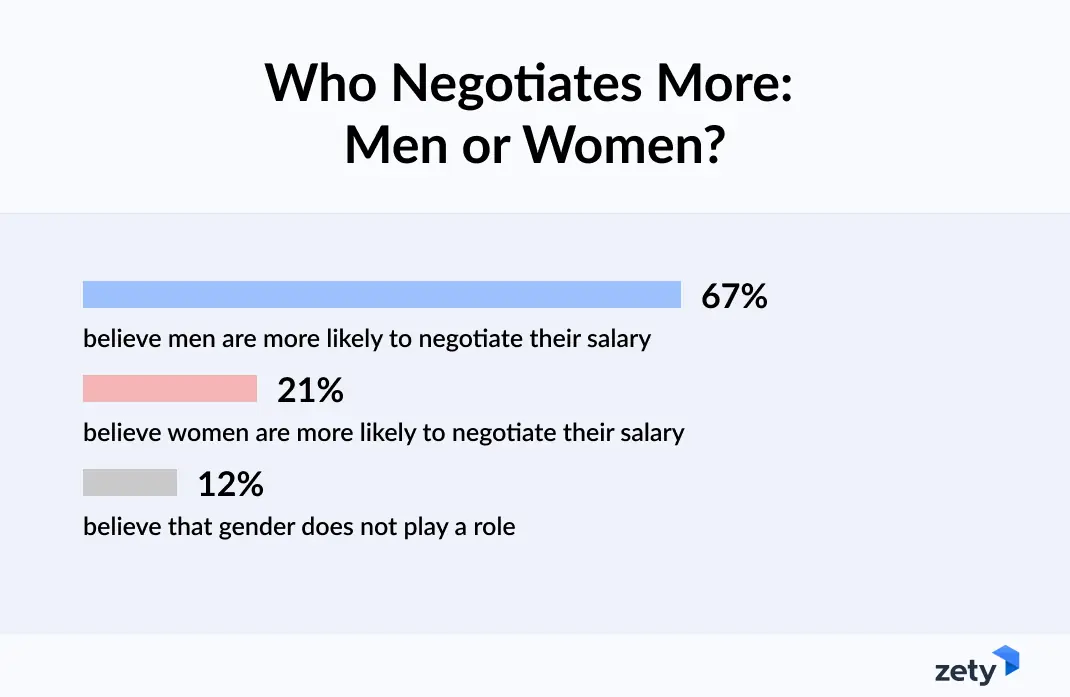
As Equal Pay Day approaches, conversations about pay equity and workplace fairness remain more relevant than ever. Zety’s Pay Gaps & Perceptions Report sheds light on the current state of pay equity, revealing key insights that can empower both employers and employees to take action.
With new pay transparency laws set to take effect in 2025, the findings highlight the ongoing challenges workers face when it comes to salary fairness, trust in leadership, and the negotiation process.
Key Findings:
- Only 55% of employees feel very confident that their salary is based on merit and performance rather than gender or other biases.
- 9 in 10 (89%) say knowing salary ranges for roles in their organization would improve their trust in leadership.
- 88% are open to discussing salary with coworkers or peers
- 55% say these conversations have helped clarify fairness or inequities.
- 77% say dissatisfaction with their salary has negatively impacted their productivity or engagement at work.
- 67% believe men are more likely to negotiate salary than women.
High Demand for Salary Transparency
Pay transparency has emerged as a critical factor in employee trust and satisfaction, with workers calling for greater clarity on compensation practices.
- Only 55% feel very confident that their salary is based on merit and performance rather than gender or other biases.
- Just 37% say salary or pay equity concerns are regularly discussed in their workplace.
- 9 in 10 (89%) say knowing salary ranges for roles in their organization would improve their trust in leadership.
- 88% are open to discussing salary with coworkers or peers, and 55% say these conversations have helped clarify fairness or inequities.

What This Means: If employers want to improve trust and employee engagement, offering clear salary transparency can help foster a more open and motivated work environment.
Pay Perceptions and Productivity Impact
Many employees feel their pay doesn't match their worth, affecting their motivation and performance.
- 32% believe they are underpaid compared to peers in similar roles and industries.
- 37% frequently compare their salary to others in their workplace or industry, while 51% do so occasionally.
- 77% say dissatisfaction with their salary has negatively impacted their productivity or engagement at work.
What This Means: Employers should address pay discrepancies and ensure that employees feel their compensation is aligned with industry standards to maintain morale and productivity.
Salary Negotiation: Confidence vs. Success Gap
While 91% of employees feel confident in negotiating salaries or raises, success rates tell a different story.
- 94% say they negotiated their starting salary at their current or most recent job, yet only 66% report being very successful in their negotiations.
- 67% believe men are more likely to negotiate salary than women.

What This Means: If you’re confident in negotiating, take advantage of salary negotiation resources or workshops to improve your chances of success. Don’t hesitate to advocate for your worth, and be prepared with data to support your negotiation.
Top Reasons Employees Negotiate Salaries
Employees are driven by a desire for fair compensation and market competitiveness.
- 54% believed their initial salary offer was below market value.
- 30% had research or data on salary benchmarks for the role.
- 13% wanted to improve their overall compensation package, including benefits.
- 3% were aware that others in similar roles earned more.
What This Means: If you believe your salary is below market value, take a proactive approach by researching industry standards. This way, you can confidently bring up salary negotiations with data-driven arguments that show your role's true worth in the market.
Most Effective Salary Negotiation Resources
70% of workers used resources to prepare for salary negotiations, with some of the most popular being:
- 38% - reviewing company salary bands or job postings.
- 37% - researching market rates.
- 34% - using online salary calculators such as Glassdoor and Payscale.
What This Means: Knowledge is power when it comes to salary negotiations. Employees who leverage research tools gain a competitive edge in securing fair compensation.
Many employees are questioning whether their pay reflects their true worth. Salary dissatisfaction is affecting workplace engagement, and while confidence in negotiation is high, success rates suggest room for improvement. By leveraging salary data, advocating for pay equity, and improving negotiation strategies, workers can take proactive steps toward fair compensation and stronger workplace trust.
Methodology
The findings presented were obtained by surveying 995 U.S. respondents on February 5, 2025 using Amazon Mechanical Turk. Participants were queried about their experiences with pay gaps, salary transparency and negotiation, responding to various question types, including yes/no questions, scale-based questions gauging agreement levels, and questions that permitted the selection of multiple options from a list of answers.


